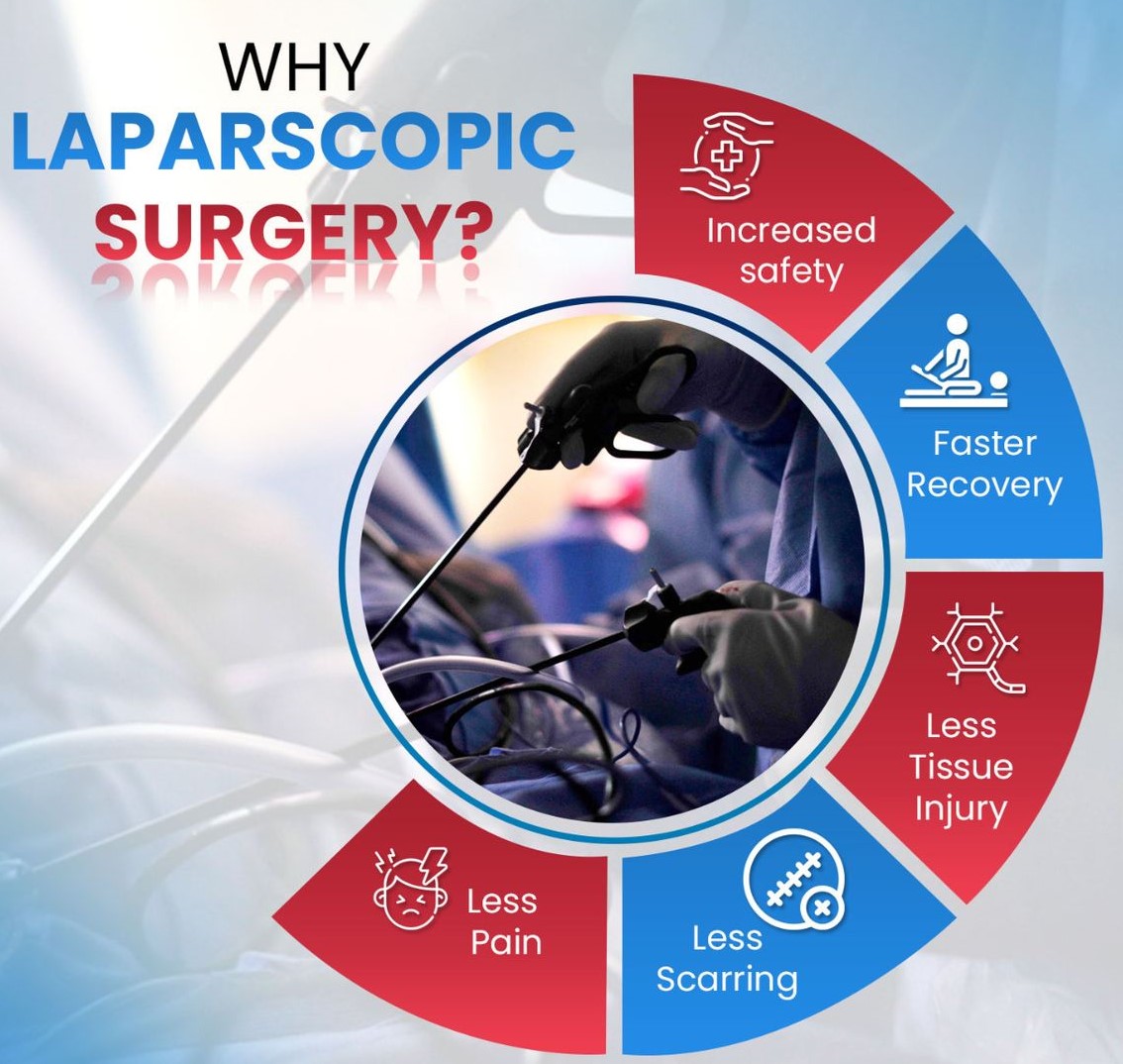Patients overwhelmingly prefer laparoscopic GI surgery over open surgery because it offers less pain, smaller scars, quicker recovery, lower infection risk, and improved outcomes for many gastrointestinal conditions. The shift toward keyhole techniques is driven by advanced technology and patient-centered care, making laparoscopic GI surgery the global standard for procedures like gallbladder, hernia, and appendix treatments.
Imagine a patient diagnosed with gallstones, hernia, or appendicitis. Faced with the decision of surgical treatment, they’re presented with two options: traditional open surgery or modern laparoscopic (keyhole) surgery. Open surgery involves large incisions, direct manual access, and has been the mainstay for decades. In contrast, laparoscopic GI surgery uses several tiny cuts, a camera, and slender instruments, allowing the surgeon to operate with visual enhancements and minimal disruption. Globally, more patients are opting for laparoscopic approaches, valuing better comfort, less scarring, and faster return to daily life. This overview explains how and why laparoscopic GI surgery is becoming the preferred choice.
Open Surgery: This traditional technique requires a large incision, giving the surgeon direct visual and manual access to the abdominal organs. While suitable for complex situations, it comes with drawbacks: longer healing, substantial pain, and higher risk of infection.
Laparoscopic GI Surgery: Known as minimally invasive or keyhole surgery, this method utilizes 0.5–1.5 cm incisions. Surgeons insert a high-definition camera (laparoscope) and specialized instruments, visualizing the area on monitors for precise operative control. It is commonly employed for gallstones, appendicitis, hernias, bowel obstructions, hiatal hernias, and reflux procedures. Laparoscopic surgery originated in the late 20th century and has evolved rapidly, offering dramatic improvements in patient experience and outcomes.
The history of laparoscopic surgery began with simple diagnostic procedures and, over decades, advanced to complex therapeutic interventions—from gallbladder removal to colorectal cancer treatments. The rise in technology and surgeon expertise has fueled its adoption worldwide.

| Criteria | Open Surgery | Laparoscopic Surgery |
| Incision Size | Large (5–15 cm) | Small (0.5–1.5 cm) |
| Pain Levels | High | Low |
| Recovery Time | Weeks | Days to 2 weeks |
| Hospital Stay Duration | 5–10 days | 1–3 days |
| Risk of Complications | Higher: infection, bleeding | Lower: wound, organ |
| Cost-Effectiveness | Lower upfront | Higher upfront, cheaper long-term |
| Long-term Outcomes | More adhesions, hernias | Fewer chronic issues |
| Patient Satisfaction | Moderate | High |
Patients increasingly opt for the laparoscopic route because it means less pain, quick return to work, minimal scars, and better overall satisfaction. The contemporary preference is rooted in quality-of-life improvements and fewer disruptions.
Laparoscopic GI surgery stands out for its comfort, rapid recovery, and enhanced safety, setting new benchmarks in surgical care. As technology and expertise expand, patients are empowered to choose minimally invasive options that prioritize quality of life. The era of keyhole surgery ensures better, safer healing, and a smoother return to daily activities, marking a new standard in patient-centered care.
| Surgery Type | Average Stay |
| Open Surgery | 5–10 days |
| Laparoscopic Surgery | 1–3 days |
Patients clearly favor laparoscopic GI surgery for its transformative impact and improved surgical experience.
MASSH Hospital is recognized as a leader in 3D laparoscopic GI surgery, combining deep clinical expertise with some of the most advanced surgical technology available in India. The hospital’s skilled surgical team, led by renowned experts such as Dr. Sachin Ambekar, sets high benchmarks through decades of experience and thousands of successful cases—making MASSH an exceptional destination for patients seeking minimally invasive GI procedures.
MASSH’s team focuses on delivering personalized care guided by the principles of P5 medicine (Personalized, Participatory, Preventive, Predictive, and Precision), ensuring each patient benefits from a tailored, minimally invasive, and compassionate experience.
With its combination of experienced surgeons and cutting-edge 3D laparoscopic technology, MASSH Hospital continues to set new standards and elevate patient outcomes in GI surgery.
Learn about H3N2 Influenza A symptoms & treatment. Get expert flu care and advanced treatment at MASSH Hospitals Delhi.
Written by MASSH
Sep 30, 2025
Want a customized Navratri diet or fitness plan? Consult our nutrition and wellness experts at MASSH Hospital for guidance tailored to your healt...
Written by MASSH
Sep 26, 2025
Follow a kidney-friendly diet with expert nephrologist tips. Learn the right foods to protect and maintain healthy kidneys.
Written by MASSH
Sep 22, 2025